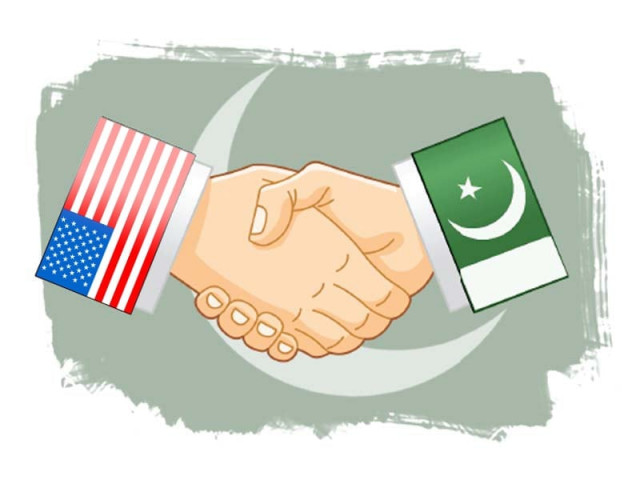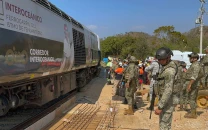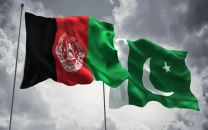Abbottabad commission: Leaked report calls for redefining Pak-US ties
Maintains there is little basis for a strategic relationship.

Maintains there is little basis for a strategic relationship. ILLUSTRATION: JAMAL KHURSHID
The Abbottabad Commission, in its report, has observed that while Pakistan has paid the price for its relationship with the US, the government has seldom been honest about it with the country’s people.
“This relationship has been on a rollercoaster ever since it began,” says the commission’s report.
“Governments in Pakistan have seldom been honest [about the relationship with the US] with their own people, leading to inevitable crises of expectations, disappointments and negative consequences. It has never been a genuine people to people, transparent or honest relationship,” it adds.

Although it notes that this is inevitable to some extent in any country’s relationship with a world power, it calls for a need to free Pakistan-US relations from ‘false assumptions’.
“The US and Pakistan may share some policy objectives but there is not a sufficient basis for a strategic partnership between them. US policies towards the region in which Pakistan is situated make that impossible,” the report states. According to it, the relationship has been based largely on Pakistan’s dependency on US economic and military assistance, and the contingent utility of Pakistan for the US.
“[The relationship] is not rooted in a tradition of shared culture, political perceptions and strategic interests… More often it has pretended to be a strategic relationship without being one, except for brief durations of overlapping interests.”
Nevertheless, according to the commission, the relationship has been ‘mutually beneficial’ at its best.
The report notes that India has been the strategic partner of choice in South Asia for the US since the end of the cold war. It contends that Washington’s discriminatory policy on civil-nuclear cooperation and its repeated violation of Pakistan’s sovereignty means that many Pakistanis view it as the primary external threat the country faces today. It adds that the US’s likely post-2014 policies in Afghanistan, the ‘very real’ threat of a war against Iran, its emerging hostility towards China and strategic partnership with India places ‘definite and undeniable strategic limits’ on its relationship with Pakistan.
“Once this is honestly accepted, a healthy and mutually beneficial bilateral relationship will become more feasible.”
Regarding the policies of former president Pervez Musharraf in the immediate post-9/11 environment, the report maintains that “Pakistan chose to become an unenthusiastic ally of the US in its war on terror in Afghanistan.”
It adds that while there were several UN resolutions on terrorism and the arrest of Osama bin Laden, there was no specific UN Security Council resolution authorising the military invasion of Afghanistan.
“For its connivance in the illegal US invasion and occupation of Afghanistan, Pakistan was duly rewarded in 2004 with the status of Major Non-Nato Ally and a substantial military and civilian assistance package. This soon led to a loose and largely unsupervised visa regime for Americans, allowing the CIA to spread its tentacles throughout Pakistan. This was in fact a condition of American assistance; it ultimately facilitated the unilateral manhunt of OBL.”
According to the report, cooperation between the US Central Intelligence Agency and Inter Services Intelligence led to the arrests and elimination of hundreds of terrorists, including several high value targets (HVT) associated with al Qaeda. It states the ISI conducted 891 operations against al Qaeda members, killing 866 – including a hundred senior figures – and apprehending 922 operatives – including 96 HVTs.
The cost of such cooperation for Pakistan, however, has been substantial, both in terms of blood and economic burden, the report maintains.
“Many tens of thousands of civilian lives and many thousands of military lives have been lost. Many more have been seriously wounded and crippled for life. Many hundreds of thousands of civilians were internally displaced from their homes by military operations. Similarly, illegal US drone attacks have taken their toll of human lives, and have inflicted massive physical injury, property destruction, psychological trauma and political alienation in Pakistan.”
Published in The Express Tribune, July 11th, 2013.



















COMMENTS
Comments are moderated and generally will be posted if they are on-topic and not abusive.
For more information, please see our Comments FAQ